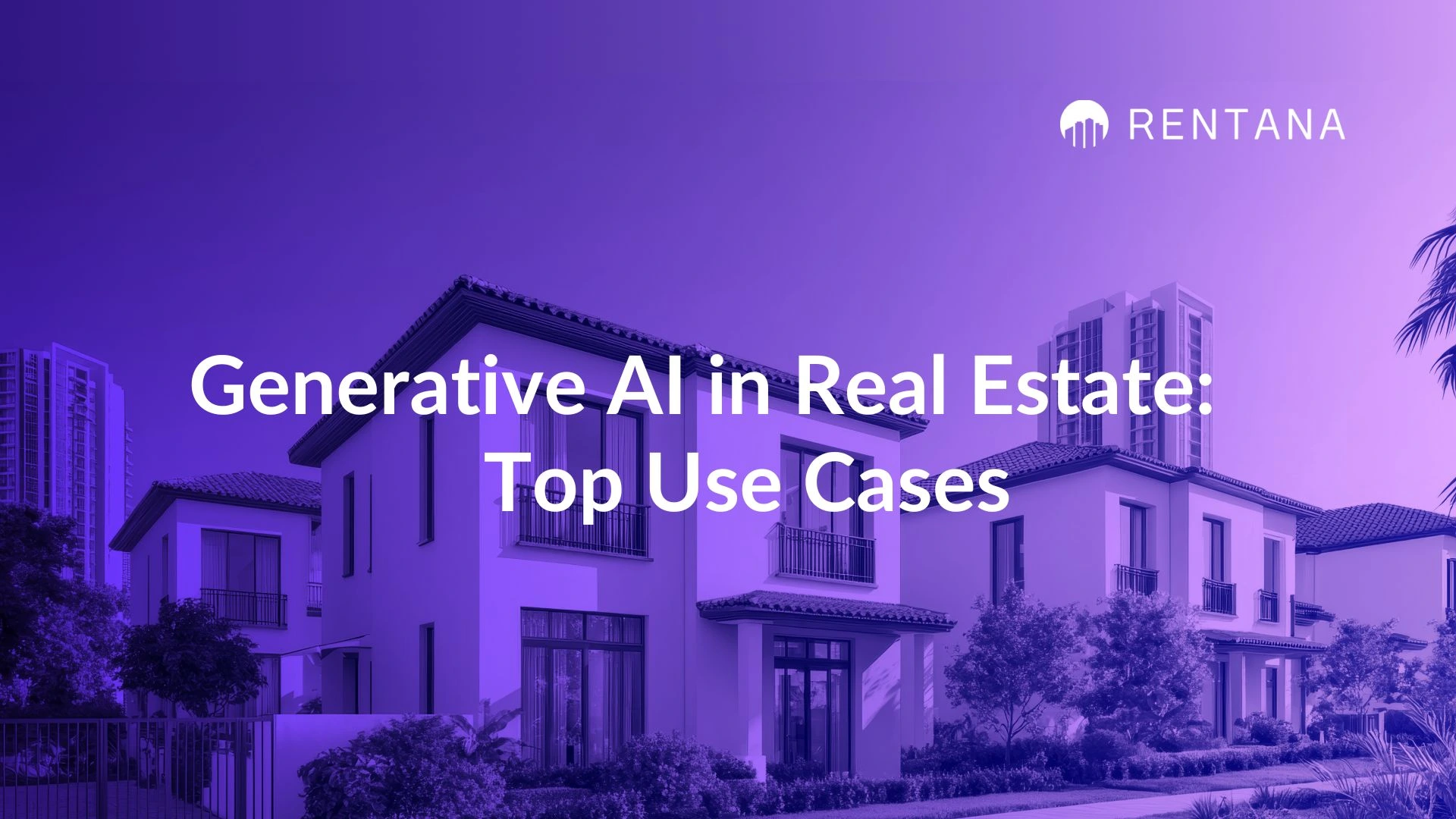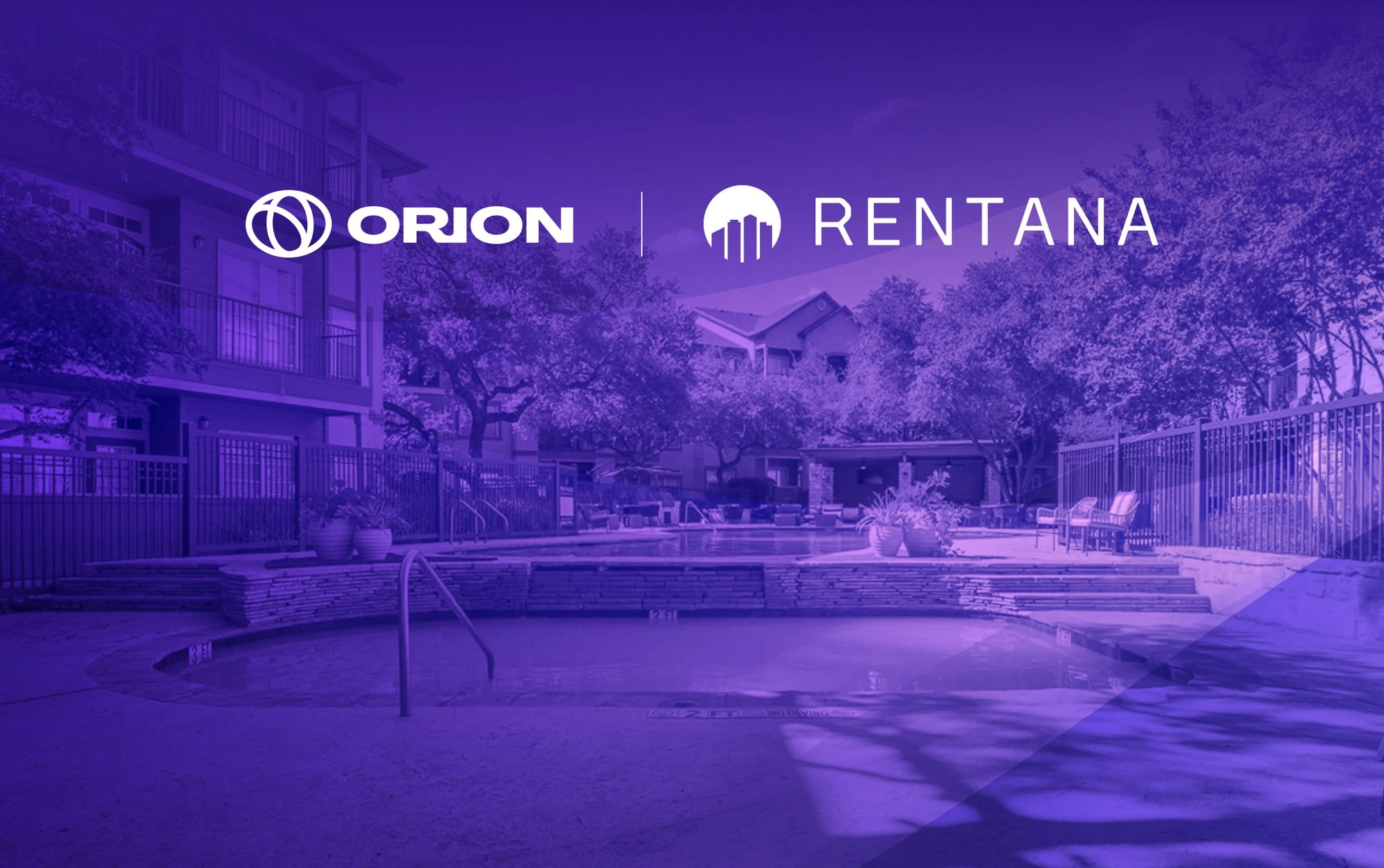




Not too long ago, whenever someone mentioned artificial intelligence, most people rolled their eyes. Some called it overhyped, others thought it was just another tech buzzword that would fade away.
The idea that a computer could write, design, or even make business decisions sounded more like science fiction than something practical.
But fast forward to today and AI is leading some of the most important conversations in almost every industry, especially in real estate.
Investors are using generative ai in real estate to forecast markets, agents are using it to create property listings in minutes, and landlords are using it to communicate with tenants around the clock. What was once dismissed as a “gimmick” is now one of the most valuable tools in the real estate toolkit.
And with generative AI, the possibilities are multiplying faster than anyone expected.

A recent report on generative AI in real estate estimated that the market was valued at $1.8 billion in 2024 and will skyrocket over $39 billion by 2030. For agents, it can mean instantly generating property descriptions and marketing materials. For investors, it means faster financial models and rent forecasts. For property managers, it makes tenant communication smoother and more consistent. Real estate has always been about location and timing, and now AI is making both of those easier to understand and act on.
Related: Top 9 Real Estate Market Analysis Tools

One of the most exciting ways generative AI is changing real estate is helping people predict what rents and property prices will look like in the future. Instead of relying only on past data, AI tools can scan thousands of signals at once; like neighborhood demand, seasonal patterns, new construction in the area, and even broader economic trends.
This makes it possible to see where rents are likely headed before the market shifts. For landlords and investors, that means fewer surprises and more confidence when setting prices or planning long-term strategies.
Rentana takes predictive forecasting to the next level by combining AI intelligence with real-time public property data. The platform can show where occupancy is trending, which units might need rent adjustments, and how seasonal changes could impact pricing. It doesn’t just give a number, it explains the data behind the recommendation with clear graphs and easy-to-read insights.
With Rentana, property managers, multifamily owners, and investors can make decisions backed by facts, not just gut feelings, and stay one step ahead of market shifts.
Creating property listings usually takes time and effort, especially when you’re managing multiple units. Generative AI in real estate can take the heavy lifting out of the process by writing complete descriptions based on just a few details.
For example, an agent can enter the number of bedrooms, location, and key amenities, and AI will generate a polished listing that highlights the property’s best features. This makes it faster to get new units online and ensures consistency across multiple listings.
The real value comes from scale. Property managers with dozens of units no longer need to rewrite the same type of description over and over. Instead, AI can instantly produce unique, engaging content for each property while still keeping it accurate and appealing. This helps units hit the market sooner, reduces downtime, and attracts more qualified renters or buyers.
Suggested Tools: Zillow Rental Manager, Avail, RentCast
Top Pick: How To Calculate the Value of a Multifamily Property Easily
Photos can make or break a listing, but empty rooms often fail to inspire potential tenants or buyers.
Generative AI in real estate solves this by creating virtual staging and 3D renderings that bring spaces to life.
Instead of paying thousands for physical staging, landlords and agents can upload photos of empty rooms and instantly receive images with furniture, décor, and lighting that make the property look more inviting.
Beyond staging, some tools also create full 3D renderings, allowing buyers to “walk through” a property virtually. This is especially useful for new developments or units still under construction. It saves time, reduces costs, and makes properties more marketable to people who may never visit in person before making a decision.
Suggested Tools: RoOomy, Matterport, Virtual Staging AI
Not every renter or buyer looks for the same thing. Generative AI can create tailored marketing campaigns that speak directly to different audiences.
From email campaigns to ad copy, AI makes it easier to match the right property with the right people at the right time.
With Rentana’s demand forecasting, marketing teams can target campaigns around the unit types most likely to fill quickly or those that need extra attention. This ensures marketing budgets go further and results come faster.
Other Tools: Platforms like HubSpot AI, Persado, and ChatGPT for Business are often used in real estate marketing.
Communication is one of the most time-consuming parts of real estate. Tenants often ask the same questions about availability, rent amounts, or lease terms, while buyers may want quick responses about showings or property details.
Generative AI chatbots can handle these routine conversations automatically. They’re available 24/7, respond instantly, and can handle multiple conversations at once..
This technology saves time and improves the experience for renters and buyers. Instead of waiting for a reply, they get the answers they need immediately, which keeps them more engaged and less likely to move on to another property. For property managers, it means less time on repetitive tasks and more time focusing on higher-value work.
Suggested Tools: Drift, Intercom, Structurely
Keeping up with shifting markets has always been a challenge in real estate. Generative AI in real estate can scan large amounts of data, such as recent sales, rent growth, construction trends, and demographic changes, and then produce clear reports that highlight the most important takeaways.
This helps agents, investors, and property managers see not just what is happening today but where the market is heading.
Rentana excels at turning complex market data into clear, actionable insights. The platform pulls together occupancy trends, demand shifts, lease trade-outs, and competitive comps into easy-to-read dashboards and reports. Instead of sifting through spreadsheets, teams get the full picture at a glance, with the ability to drill down from portfolio-level trends to unit-level details.
This makes it possible to anticipate market changes, adjust pricing strategies, and make confident decisions faster.
Related: 7 Best Asset Management Reporting Software for Multifamily
For investors, one of the hardest parts of real estate is figuring out whether a deal is truly worth it.
Generative AI in real estate can speed up this process by running complex models in minutes. Instead of manually calculating cash flow, ROI, or cap rates, AI can take property data and instantly generate multiple scenarios, such as what happens if vacancy rises or expenses increase. This makes it easier to compare opportunities and choose the ones with the best long-term value.
Deal analysis also becomes more accessible for new investors. Even without a financial background, they can plug in simple details and receive clear insights about risk and return.
This reduces guesswork and helps ensure smarter decisions when buying, selling, or refinancing multifamily properties.
Suggested Tools: Mashvisor, Stessa, Roofstock
Paperwork can slow down every part of a real estate transaction. Generative AI is helping by drafting leases, agreements, and disclosure forms in minutes.
By pulling from templates and adjusting them based on the property and tenant details, AI can create professional documents that are ready to review. This means less time copying and pasting and fewer errors from manual work.
Property managers also benefit by being able to quickly generate renewals, amendments, and notices.
Instead of waiting on lawyers or spending hours editing, they can start with an AI-generated draft and simply make small adjustments. It makes the process smoother and faster while still keeping compliance in check.
Suggested Tools: Avail, DocuSign AI, LegalTemplates AI
Agents and property managers often spend hours chasing leads that go nowhere.
Generative AI in real estate can change this by sorting through leads and matching them with the right properties. It can analyze buyer preferences, budget, and past behavior, then suggest which properties are the best fit.
This makes follow-ups more effective and helps agents spend their time on serious prospects instead of dead ends.
For renters and buyers, this also improves the experience. Instead of scrolling through hundreds of listings, they can be matched with properties that actually meet their needs. The result is a faster process for everyone involved and higher satisfaction on both sides.
Suggested Tools: Zillow AI, BoomTown, Propertybase
Maintenance is one of the most common pain points in property management.
Tenants often submit requests with little detail, which can slow down repairs.
Generative AI can take these messages and turn them into clear work orders for maintenance teams. For example, if a tenant types “the heater isn’t working,” AI can translate that into a detailed ticket with location, priority, and possible causes.
By organizing and prioritizing requests automatically, AI helps property managers respond faster and cut down on miscommunication.
It also makes it easier to track recurring issues and spot trends, such as specific units or appliances that need attention more often.
Suggested Tools: Property Meld, Buildium AI, AppFolio AI
Learning the ropes in real estate can be overwhelming, from mastering local regulations to handling client conversations.
Generative AI can help by creating training modules, role-play scenarios, and personalized learning paths for new agents and managers.
Instead of reading a massive manual, employees can interact with AI and practice real situations in a safe environment.
This kind of training is not just faster but also more engaging. It allows people to ask questions, get instant feedback, and revisit topics until they feel confident.
For companies, it means new hires get up to speed quicker and with more consistency, improving performance across the board.
Suggested Tools: Mindtickle AI, Lessonly AI, LearnUpon AI
Recommended: How to Determine a Good IRR for a Rental Property

One of the clearest signs that generative AI is reshaping real estate comes from Orion Real Estate Partners, a tech-forward investment firm. Before using Rentana, Orion relied on a manual pricing process that was slow and caused rents to decline by 3.5%.
Their team had to dig through multiple systems and reports just to make decisions, which wasted time and limited performance. After adopting Rentana’s AI-powered platform, the results were dramatic. Within only five months, Orion achieved a 350%return on investment, cut pricing review times from an hour to just ten minutes per property, and lifted occupancy by 2%.
Another early adopter, 29th Street Capital, saw similar success. Using Rentana’s real-time forecasting and market insights, the firm achieved a $4.6 million valuation boost in just 90 days, outperforming a competing system from a more established industry provider.
These cases show that generative AI is not just a trend but a proven way to improve efficiency, strengthen pricing power, and unlock new value. The firms that are embracing it now are building a lead in a market that rewards speed, accuracy, and smarter decision-making.

Generative AI is opening doors that once seemed impossible in real estate, but it is not without challenges. Questions around data privacy, accuracy, and the need for human oversight are still important. No tool can replace the judgment and experience of seasoned professionals, and AI should be seen as a partner rather than a replacement.
What is clear is that the future of real estate will be shaped by those who learn to combine their expertise with the power of AI. Early adopters like Orion and 29th Street Capital are already showing what is possible, and their results make a strong case for where the industry is heading.
Generative AI is no longer a theory or a buzzword, it is becoming part of the everyday toolkit for investors, property managers, and owners who want to stay ahead.
The next chapter of real estate will belong to those who embrace this shift and use it to move faster, think smarter, and unlock new value.